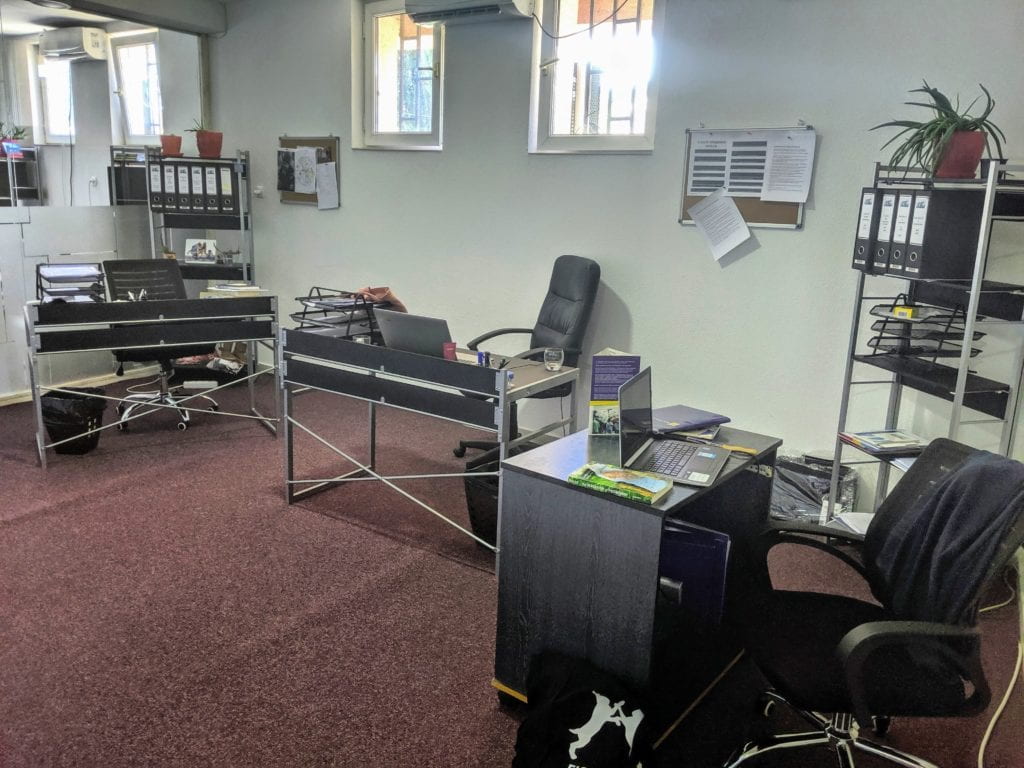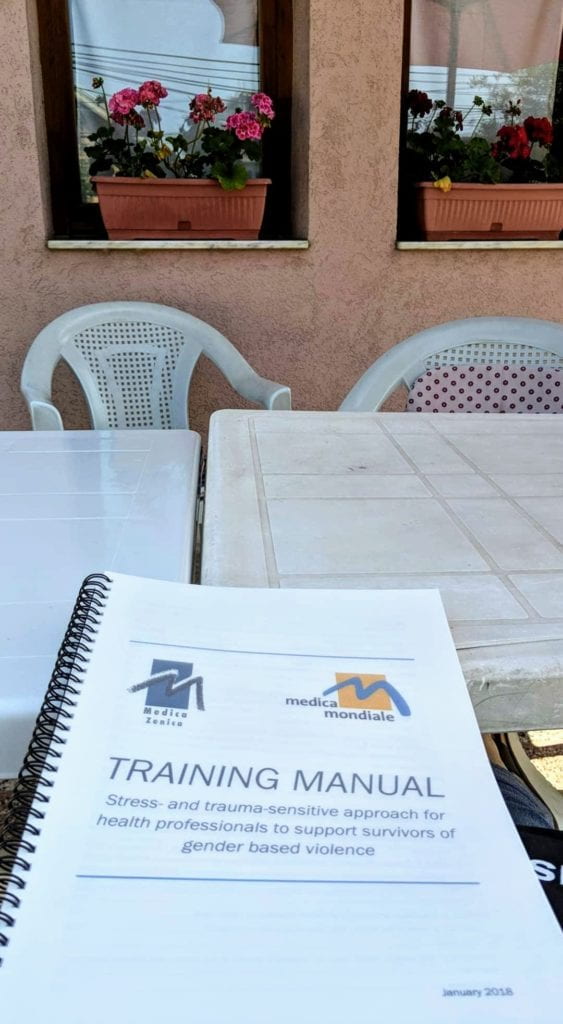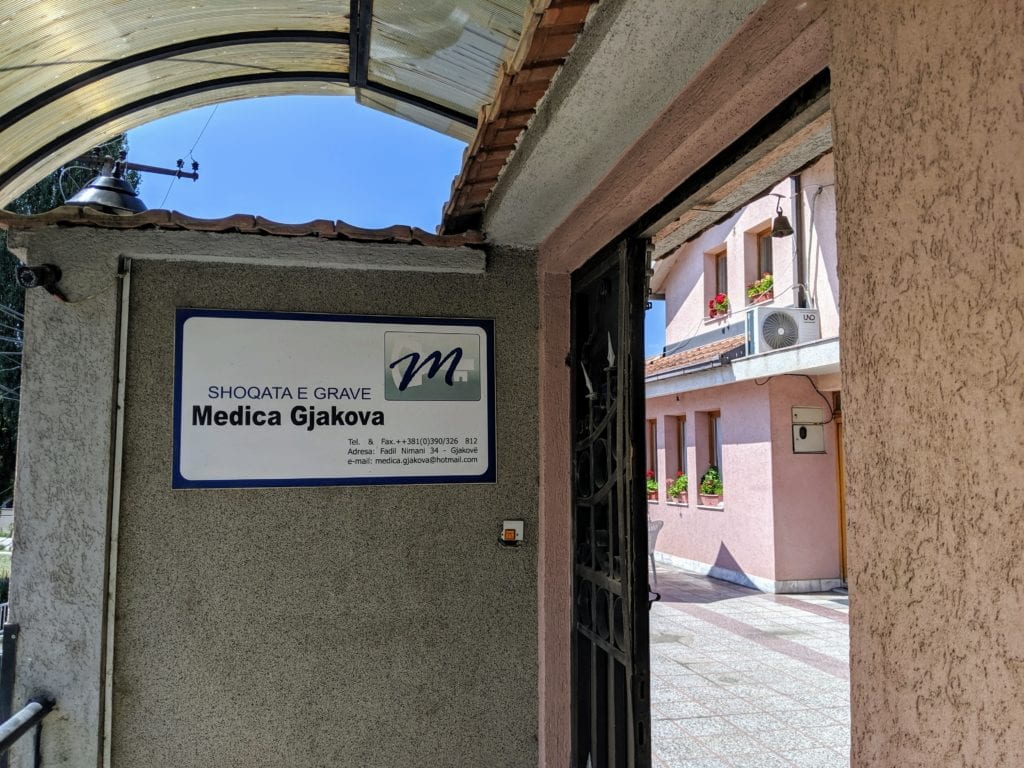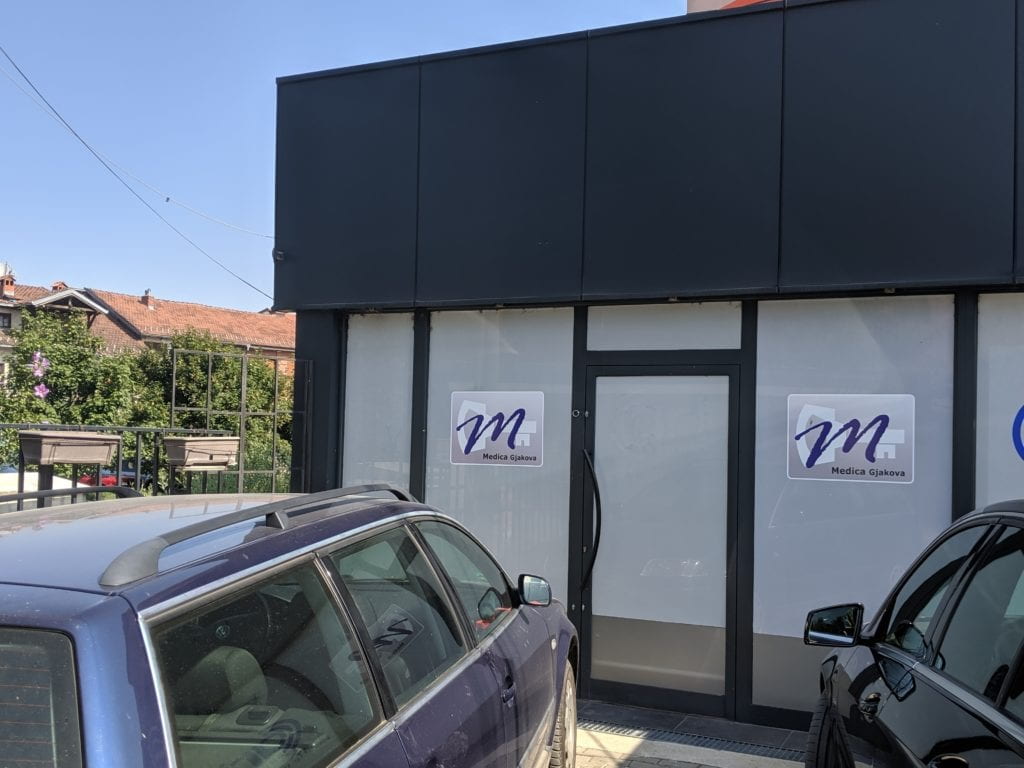Viktoria Pashtriku
Women’s Association Medica Gjakova
Gjakova, Kosovo
Perhaps one of the biggest challenges survivors of wartime sexual violence face is interacting with professionals in the various structures of society who are not equipped and informed enough to understand the trauma of wartime sexual violence and the sensitivities needed in order to properly engage and help survivors. In doing so, these professionals can often evoke harmful and hateful behaviors that violate the rights of survivors, preventing them from getting or seeking out the services they need.
As a response to this struggle, Medica Gjakova is launching an initiative to properly train medical professionals around Kosovo. I’ve assisted in this initiative by conducting research, gathering data/information, and selecting training exercises for Medica Gjakova’s “Training Manual: Stress- and Trauma-Sensitive Approach for Health Professionals to Support Survivors of Gender Based Violence.”
-

The office where I do my work. A desk was set up for me alongside those for the legal adviser and project manager. My research included reading fundamental books on trauma, such as Judith Herman’s Trauma and Recovery and Bessel van der Kolk’s The Body Keeps the Score: Brain, Mind, and Body in the Healing of Trauma, as well as reading medical and psycho-social materials on specific topics such as symptoms of sexual violence survivors, dissociative disorders, the impact on family and children of survivors, and the self-care of professionals. In addition, I looked over the training manuals created by Medica Zenica (Bosnia-Herzegovina) and Medica Afghanistan last year.
Medica Gjakova, Medica Zenica, and Medica Afghanistan are partner organizations of the German women’s human rights organization, medica mondiale, which provides support to women in conflict zones. Alongside Kosovo, Bosnia-Herzegovina, and Afghanistan, this medical training initiative is also being implemented in Iraq.

Taking advantage of the warm weather outside while reading Bosnia-Herzegovina’s training manual, prepared last year as part of my research.
The training manual will be used to initially train a select group of 16 medical professionals from various institutions throughout the Gjakova and Prizren municipalities in Kosovo. Those individuals will then be given manuals and training materials in order to go back to their home institutions and train other medical professionals, properly equipping another 100 medical professionals with the proper knowledge and skills to provide targeted resources to survivors of sexual- and gender-based violence.


Medica Gjakova is working in collaboration with Kosovo’s Ministry of Health and the Kosovo University Clinical Centre in order to implement the project, with hopes to train all of Kosovo’s public health system. Through this experience, I’ve learned that improving the services available to survivors – be it medical, legal, educational, etc. – is a crucial component of the human rights process.